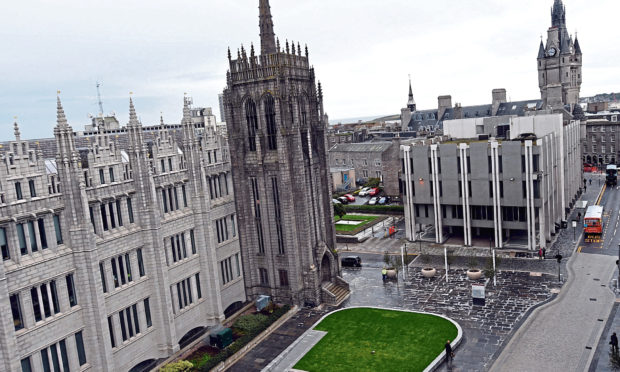Cast your mind back almost 20 years to the al-Qaeda attacks on New York’s twin towers and other American targets. An ambitious young UK civil servant called Jo Moore seized on the non-stop media coverage and advised her fellow government advisers it was a good time to release to the public any bad news they were then withholding.
She pointed out that such potentially damaging information would slip under the radar as the world obsessed over the US events.
Unfortunately for Ms Moore, she failed to remember that government departments leak like a sieve and her misguided memo made it into the public domain – swiftly ending her career. I mention this now because this rather sordid tactic appears to have been adopted by Aberdeen City Council, which has used the coronavirus crisis as a smokescreen to introduce its four-weekly cycle for bin collections in the city. It has long been known that this was the city’s desire, stopped only by the ferocity of public opinion against such a move.
No sooner had the lockdown been imposed in late March, than the city council announced it was closing all waste recycling centres and switching its food waste and mixed recycling bin collections from a two-weekly cycle to every four weeks, citing coronavirus and reduced staff numbers for this “temporary” move.
Most people took the view that this was unfortunate but necessary and accepted the change as one side effect of an unprecedented worldwide disaster. After all, infrequent bin collections paled into insignificance when thousands of people were dying.
It turns out, we had been suckered. The council has now published on its website the new schedule for collections, revealing that this system will last until at least next year. Most – if not all – of the temporary restrictions organisations and businesses have put in place to control the epidemic will be reviewed at some time this month, or by the end of June at the latest. Does Aberdeen City Council know something that the rest of the world’s experts don’t (unlikely given their track record)?
The inescapable conclusion is that the council has used a Trojan horse to introduce a policy it knew it could never carry off in normal times. It is a disgrace, not least because it has already forced thousands of residents to pay a £30 surcharge that allows them to put garden waste in with the food waste. How much of a privilege will that be if it is then going to sit, rotting and smelling, for up to a month until it is collected? There has already been a huge increase in fly-tipping due to the closure of waste recycling centres. That will only continue to increase if the powers that be do not reconsider this hare-brained scheme.
After almost 40 years working in the media, including half that time working at the sharp end of news gathering, I have always defended the profession’s right to question, to challenge and to criticise where necessary (see above for confirmation). In common with many of my colleagues, I was sworn at, threatened, punched and even shot at on one occasion simply for doing my job. I put up with that because I genuinely believed that a robust, independent media was a vital cog in a democratic society. The money wasn’t bad either.
I could never have envisaged that I would sympathise with those who saw journalists as the enemy; languishing at the bottom of the public trust table with politicians and Catholic priests. Now, however, after nearly 10 years of retirement, I have my doubts. These have surfaced through watching the antics of broadcast journalists, primarily from the BBC and Sky.
There is a growing feeling that TV reporters have failed to capture the mood of the nation and that their constant search for the negatives of the situation in which we find ourselves does not sit comfortably with the forbearance of a nation patiently enduring the stultifying boredom of six weeks without family, friends and pubs. Of course, they should be questioning why frontline medics were asked to work without proper safety equipment and why care homes were apparently abandoned to their own devices in the early stages of the pandemic. But people increasingly feel the achievements of the national effort are marginalised or even forgotten. The successes that are reported seem to come with a caveat suggesting the books have been cooked.
I believe that, at the end of all this, there should be a public inquiry. Not to apportion blame or find a scapegoat, but to ensure we can never be so far behind the 8-ball should such an emergency happen again. Until then, an attempt at balanced TV coverage would be welcome.
Derek Tucker is a former editor of The Press and Journal

